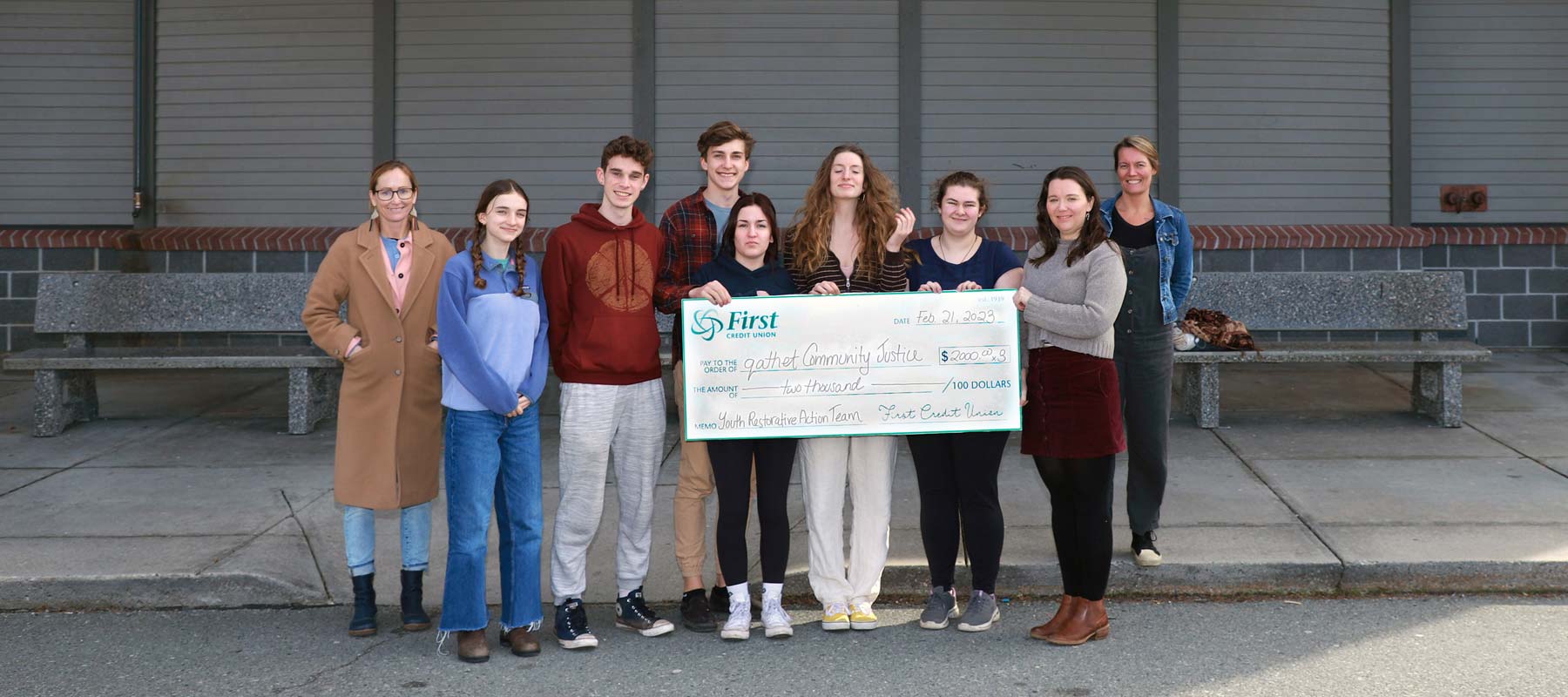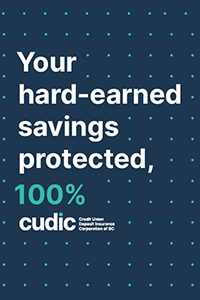
Conflict is part of life. Learning how to deal with it effectively is a skill that builds resilience in young people, in families and in communities. Conflict resolution is a focus for qathet Community Justice (qCJ), an organization that provides criminal and non-criminal Restorative Justice services in the qathet region.
Program Coordinator Siobhan Brown explains that Restorative Justice is an alternative to the criminal legal system that empowers the people directly impacted by crime to develop their own solutions.
“Restorative justice is less punitive,” Siobhan says. “It's not about arguing the facts of the case. It's really about accountability. Whoever is responsible has willingly said that they have done something harmful, and that they want to make up for it. Nobody's forcing them to be there. The affected party also wants to be there, to either get some closure or determine next steps that work for them, instead of something that is court mandated. It's totally voluntary and that's the only reason it works.”
The process is valuable as a different approach to conflict resolution, Siobhan says, because sometimes going through the criminal legal system and the court process can be re-traumatizing for victims. “Restorative Justice is healing and gives more power to people.”
qCJ also facilitates circle discussions about community issues that larger groups of people want to talk about. They recently held a youth circle so participants could talk about the idea of a name change for Powell River.
“The process is really flexible,” Siobhan says. “There are certain constants, like having a talking piece. Everyone sits in a circle and agrees to a set of guidelines. There's typically an opening ceremony and a closing ceremony to mark the space. The discussion goes round and round the circle. Participants talk about the impacts of what has happened, and what they want to see happen next.”
The work qCJ does with youth is a key focus for the organization, and it’s receiving more attention thanks to three years of ongoing funding they are receiving from First Credit Union ($6000 over three years). Chelsea Friesen, the Youth Restorative Action Coordinator, says the funding will be used to grow the Youth Restorative Justice Program.
“There are six or seven core youth who are currently on our youth committee,” Chelsea says. “We meet bi-weekly at Brooks. This year so far, we've done Grade 8 workshops where we present about what Restorative Justice is, and then the class does a circle dialogue themselves. The students have also started facilitating lunchtime dialogue circles.”
Bringing restorative approaches to schools and youth is very effective, Chelsea says. Students can use restorative tools to resolve peer conflicts. It also offers an alternative to teachers or administrators when it comes to punitive discipline like suspension or expulsion. “In my opinion, students don't often learn much from that. The Restorative Justice process allows the student involved the chance to talk about what has happened and understand the impacts of their actions. At the same time, it gives the person who was maybe bullied or harassed a chance to speak. In this process people look each other in the eye and develop some empathy.” She notes that School District 47, and Brooks Secondary School in particular, have been supportive of youth-led Restorative Justice.
One of the reasons Chelsea is personally so passionate about her work is that she sees it helping people talk about difficult or uncomfortable things.
“Many of us tend to emotionally react and that makes it hard to find middle ground or understanding. I've been really shy my whole life but participating in circles has really changed how I communicate with others and express myself. And I think it can do that for others.”
The Youth Facilitator training is a condensed version of the full training program, Siobhan explains. Once youth have completed it, they have opportunities to join circles with experienced case workers.
“Every time we have a youth case, we try to have a youth member on the team. That way they learn the process and get more comfortable.” Eventually the goal is to have all youth conflicts facilitated by youth with just one adult supervisor. Currently youth cases make up about 50 per cent of the cases at qCJ. Building these skills in the youth in our community has a tremendous trickle-down effect, Siobhan says.
“There are so many ways these skills can be used in peoples’ lives. With First Credit Union being able to support youth training, it spreads so far—even if you have 10 youth in a training each year, and then they attend events and go out into the community with these skills, the impact is really big.
Written by: Emma Levez Larocque

